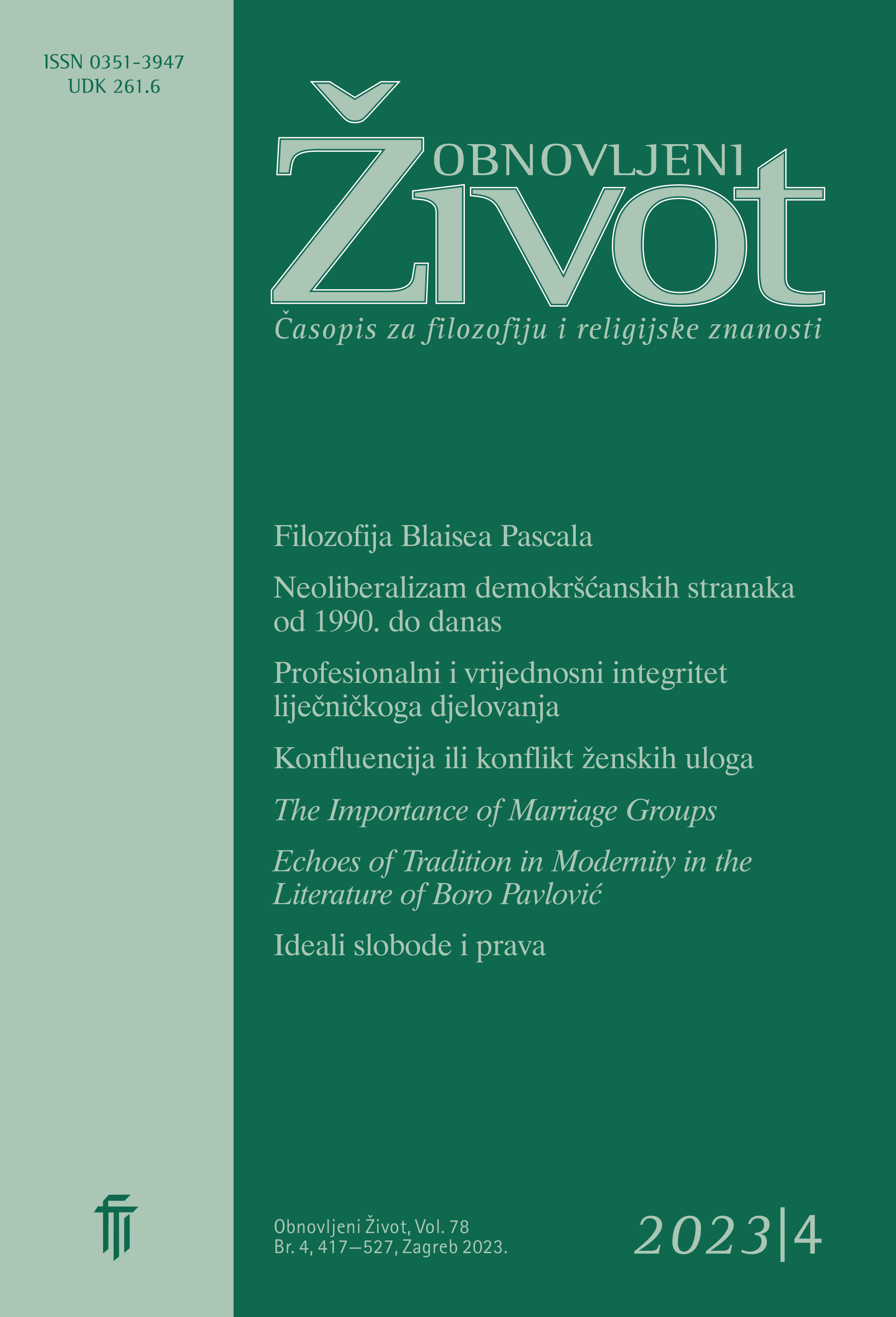Confluence or Conflict in Women’s Roles during Croatia’s Transition and Post– Transition Period
Theoretical–Empirical Research on the Attitudes of Croatian Women
Keywords:
women’s role, traditional model, dual model, confluence, conflict, European Values Study, CroatiaAbstract
The paper examines the stability of the female roles of mother and working mother as they are exemplified in different socio–demographic familial groups (in regard to marital status and number of children) during the transition and post–transition period in Croatia. Based on the social doctrine of the Church, the theoretical starting point of role relationships are confluence and conflict, which are treated here with respect to the “theory of conflict” and the “theory of enrichment”. Two models of women’s roles are developed: the traditional (mother) and dual (working mother) roles. The empirical aspect of this research is based on the last three waves of the European Values Study (1999; 2008; 2018), and it studies the attitudes of the female respondents. The traditional model is examined through an item on attitudes toward the primacy of home and family over a woman’s job, while the dual model is examined on the basis of an item on the negative consequences of the mother’s job upon the child. The economic aspect is examined through an item on work and free time. A simple analysis of variance (ANOVA) was used to test differences in attitude change in regard to three items, considering the year of measurement and socio–demographic familial factors. The results demonstrate the stability of the traditional model, but also the role conflict for working mothers (dual model), which is linked to economic conditions. The paper puts forth elements which are important for the prevention of role conflict in order to preserve the woman’s subjectivity, selfhood and her motherhood.
Downloads
Published
Issue
Section
License
Jednom prihvaćeni članak obvezuje autora da ga ne smije objaviti drugdje bez dozvole uredništva, a i tada samo uz bilješku da je objavljen prvi put u Obnovljenom životu. Uredništvo će obavijestiti autora o prihvaćanju ili neprihvaćanju članka za objavljivanje.
Članci objavljeni u časopisu se, uz prikladno navođenje izvora, smiju besplatno koristiti u obrazovne i druge nekomercijalne svrhe.


